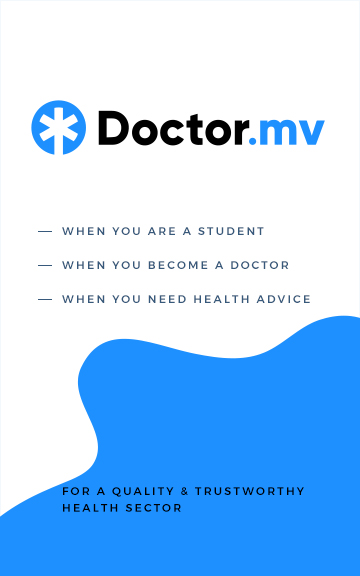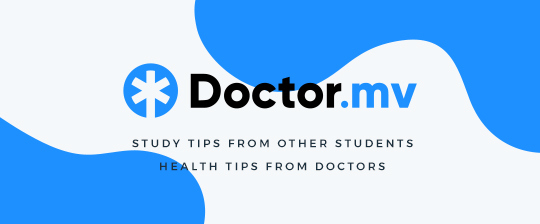I'm AMINATH SHAFAQ and this is My Medical Student Life

Nabeel Ibrahim
Published on: 27/08/2018
Tbilisi State Medical University Sixth Year Georgia Aminath ShafaqUniversity
Tbilisi State Medical University
Current Year
Sixth
Medical Specialty Interested in
Family Medicine
Most Inspiring Person
My Sister, my Mother, and my Mother-in-law
Single Quality that defines a great Doctor
Compassion
First of all, walk us through the step-by-step processes that you went through to get to where you are today?
I completed my Secondary education from Aminiya School, after which, while waiting for my O’level results, I participated in a survey conducted by the Ministry of Health as an Enumerator. It was here that I got the opportunity to travel to nearby islands where I interacted and spoke with the locals. This was one of the milestones for me as this was the first time I had to be without my family. This was also my very first step into gaining the confidence to speak with strangers, something of utmost importance in the medical profession.
After surveying for about 6 months, I joined CHSE to do my A’ levels, after which, as I awaited the results, I joined Family Care Clinic as a Clinical assistant. This was my first exposure into the medical world.
About 6 months later, I started working in ADK to expand my horizons on the medical field. I worked here for another 6 months or so and then went to IGMH to work for the same position.
It was about 8 months later that my sister found an ad on the newspaper, of an agency, ICAM, that sent students abroad to study. Tbilisi State Medical University, Georgia was one of the universities they were affiliated with. We met with the agent and found the details. I learnt that 2 students were studying there already and I wont be completely alone.
And on the April of 2013, I left for this journey, not truly understanding the change that awaited.
When did you first realize you wanted to study medicine?
Throughout the school years, just as for other students, there were multiple times I was asked about my aspiration. I don’t remember thinking about being anything but a doctor. My work experience later strengthened this.
However, when I look back into my initial years of MBBS, I remember many times thinking, ‘this isn’t what I signed up for’.The tight class schedules, the way I just didn’t know how to absorb so much information in a span of one day, taking complete responsibility of cooking, cleaning, shopping for groceries and handling the culture shock, it was all very new.
It was only when the clinical years started, that I realized even my studying practices were just wrong. I had been memorizing lessons up to here. It was then I discovered that the only way to edge the concepts into my mind was to understand them. Some Youtube channels, Osmosis, Armando Hasudungan and Medcram, just to name a few, became my best friends.
This was when things became a easier, and with the right kind of help I was able to fully commit to my journey of becoming a doctor. By this time, I had learnt how to handle the household chores in a more organized way and I had adjusted.
Hence, I couldn’t say that it was a moment that made me realize that I wanted to do medicine. It was, rather, this whole journey that has convinced me that I want to study medicine.
Take us through a typical study day.
Since 4th year, we’ve been studying module wise. So when we finish Surgery, lets say, then we do OBGYN, or another module. I don’t follow a tight schedule since I like to keep it flexible for something that might come up.
Nevertheless, I usually start off with breakfast, so that I can focus in class instead of thinking about how hungry I am, which can be quite distracting. If class is at uni, it’s just a 3 min walk since I live right across. If it’s in a clinic, however, we’d sometimes have to take the bus or metro. It takes at least 30 minutes or longer one way.
By afternoon, I’m home and having lunch before I begin doing the readings and taking notes. Some days I’d sit through out the day, some days I’m done early, and some days I don’t finish at all. In between, I try to make some time to go to the University gym for about an hour, at least on alternate days. I truly believe that as Doctors, we are to set an example for others to whom we advice and prescribe a healthy lifestyle, of which, the right kind of exercise is essential.
By evening, I’d have a mini supper and try to complete my notes. Although I try to sleep as early as 10 o clock with the intention of waking up early, I’m normally held longer to study my notes. If I keep it for the morning, I’ve learnt that I’d choose the sleep after Fajr over studying at that time.
How do you like to spend your free time?
Free time, I’d say doesn’t exist when you’re a student. It’s about making time to do something else for the sake of sanity. Studying can saturate our minds to the point that sitting beside the table even one minute longer will not help you absorb any more information.
Personally, a chat with my husband, Niyaz, or my best friends, Sakha and Jana, helps. I call my mother everyday, and her constant supportive words has thus far kept me going.
On some weekends, me and my room mate, Chompy, might also watch a movie, or plan to hang out at a friend’s place. One thing for sure though is, that it always involves food other than what I had been having consistently for the past 3 days, at least.
What was one of your most defining moments in life?
Career wise, I don’t think that moment has come yet.
Name your favorite medical text book.
Davidson's Principles & Practice of Medicine by Brian Walker, Nicki R. Colledge, Stuart Ralston and Ian Penman.
Are there any students in your class that inspire you? Why?
Christina, one of my friends who both inspires and humbles me. She’s not in my class, but having the privilege to know a little about her, the resilience and perseverance she has shown in the face extremely difficult times while studying, keeps my heart grounded.
What do you know now that you wish you knew when you first started medical school?
That I was going to be spending over 95% of my time all by myself.
What do you think needs to change in the health industry of the Maldives today?
I believe there needs to be more interest and investment in the field of public health. Even in the Maldives, the rates of Cancer and chronic diseases are on the rise. Nevertheless, I feel that nothing is done to address this issue at a national level. Educating and creating more awareness about preventative medicine, I think, is a major step towards producing a healthier population.
Finally, what is the one tip/advice you want to give to our readers?
Firstly, it Is going to be nothing like Grey’s Anatomy or House. This is to say that the perception of being a doctor is very different from reality. While neither of these shows depict what and how, being a doctor truly is, the years behind becoming one are non existent. So I’d advice medical students not to fantasize of our career being this way.
Secondly, If you’re a medical student already, especially a pre med or a 1st year, it’s crucial to understand the basics that you will study in your first 3 years, so that you can apply these key concepts when you start clinical years. Believe me, it’s going save you so much of your time.
Finally, try to find your best method of learning early. Like they say in medicine, Early diagnosis leads to early intervention and better end results.
The My Medical Student Life series was created for the sole purpose of helping medical students and aspiring doctors on their journey to become a successful Maldivian Healthcare Professional. Have a suggestion, idea or question? Email us.



Leave a comment
0 Comments